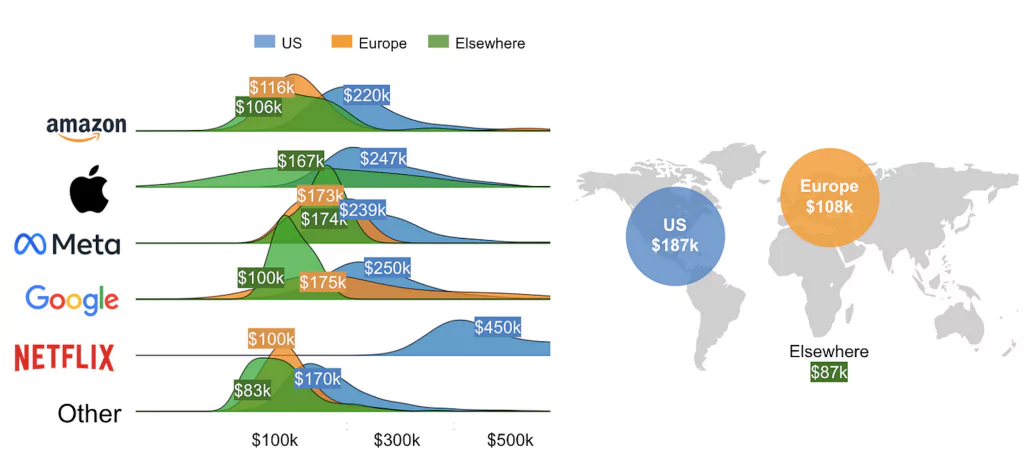
Brian, a recent Computer Science graduate, finds himself at a crossroads that many fresh graduates face: Should he dive into the workforce or continue his academic journey for a Master’s degree?

✅ AI Essay Writer ✅ AI Detector ✅ Plagchecker ✅ Paraphraser
✅ Summarizer ✅ Citation Generator
Key Takeaways:
- Work experience can be valuable and is highly appreciated in the industry. It complements academic knowledge and may expose a graduate to real-life scenarios that are not addressed in the academic setting.
- Companies and federal government programs may offer to cover the costs of a Master’s degree, making it possible to gain both work experience and further education.
- Having a clear goal for a future career path can guide the decision between entering the workforce immediately or pursuing advanced education.
- Academic reputation and rankings should be factored into decisions, but they are not the only factors to consider.
The dilemma is encapsulated in the two opportunities in front of him: a promising job offer from Northrop Grumman, a leading global aerospace and defense technology company, and an acceptance to the prestigious Masters in Computer Science program at Columbia University.
With a broad spectrum of interests, including AI/ML research, software development for automobiles, remote work, and working at esteemed organizations like SpaceX, NASA, or FAANG, Brian’s aspirations are diverse and ambitious. His overarching goal, however, is clear: to carve a successful career path in the field of Computer Science. His pursuit of a lucrative job in the financial sector as a quant, a creatively challenging role at SpaceX or NASA, or a dynamic remote job aligns with his ultimate objective.

His concerns are multifaceted. While the job at Northrop Grumman promises valuable work experience and a secret clearance, he worries about the relatively low pay for programming and the company’s defense focus, which doesn’t align with his passions. Also, the distance from home adds another layer of complexity. The alternative of the Master’s program at Columbia, despite the institution’s impressive ranking and reputation, comes with a hefty $70,000 price tag and a commitment of 1.5 years.
With both choices presenting their unique advantages and drawbacks, Brian stands at the intersection of immediate financial stability and long-term career prospects. The decision also carries implications for his eligibility for new grad recruiting opportunities. His query is as profound as it is common: Should he make a beeline for the job market now, or would further education potentially open even better doors down the line? These are the questions that add weight to his post-graduation crossroads.
Balancing Theory and Practice: Advice from Experienced Peers
Striking a balance between theory and practice is a quintessential part of professional growth, especially in technical fields like Computer Science. One of Brian’s experienced peers shared this perspective and argued against forgoing a job opportunity, emphasizing the irreplaceable benefits of practical experience. The seasoned professional stated,
“Master’s aren’t really worth all that much outside of academia if you don’t have job experience as well.”
They highlighted the critical disconnect that often exists between academic settings and the workplace, where unexpected complexities and unpredictable challenges are the norm. This serves as a reminder that a strong theoretical foundation, although important, needs to be complemented by hands-on exposure to industry-specific problems. Their solution was a strategic approach that allows for parallel progress on both fronts – gaining job experience while pursuing an online Master’s degree.
Leveraging Sponsorship and Work Flexibility
While higher education, particularly at prestigious institutions, often comes with a daunting price tag, sponsorship programs provided by employers present a viable solution. Another contributor suggested this option, encouraging Brian to leverage his clearance, work for a company that offers sponsorship, and consequently avoid footing the tuition bill himself. This approach introduces a pathway that merges professional growth and continued education, offering a financial reprieve for many students.
Moreover, another commenter – a current employee at Northrop Grumman – informed Brian about the company’s education program that funds employees’ Master’s degrees while they continue to work. Not only does this hint at significant financial savings, but it also presents the possibility of flexible work arrangements.
“They’re also, depending on the team you’re on, super flexible about being remote,”
added the Northrop employee, shedding light on the increasingly valued aspect of remote working in the evolving employment landscape.
Clear Goals and Valuable Experience: Keys to Future Success
Career clarity and practical experience have long been heralded as the keys to future success, a sentiment echoed by various respondents in Brian’s thread. One advice-giver emphasized the importance of gaining experience before considering graduate school, stating, “experience is very important to get future jobs, even after a grad degree. Without experience, you are less competitive for internships or post-grad jobs.” This is a reminder that while academic qualifications can open doors, hands-on experience often seals the deal when competing for coveted positions.
Similarly, the need for clear and defined career goals cannot be overstated. The clearer the vision of one’s professional path, the easier it is to align decisions about further education or job opportunities with those goals. This is particularly critical when faced with the prospect of expensive education. The idea of striving to achieve scholarships or securing an employer-funded education was emphasized, which alleviates financial burden and aligns with the broader objectives of gaining experience and valuable industry exposure.
Conclusion
Brian’s predicament mirrors the challenge faced by countless recent graduates across the globe. The decisions made at this juncture can have far-reaching implications on their professional trajectory. The discussion above underscores the importance of balancing academic pursuits with practical work experience, defining clear career aspirations, and seeking innovative solutions like employer sponsorship and remote working options when navigating this dilemma.
Related stories:
Industry Leaders Share Their Insights on Tech Careers in an Evolving Landscape
Everyday Employees Automating Work With No Coding Skills Needed
Shifting Job Market: College Grads Navigate from Tech to Other Thriving Industries
Follow us on Reddit for more insights and updates.





Comments (0)
Welcome to A*Help comments!
We’re all about debate and discussion at A*Help.
We value the diverse opinions of users, so you may find points of view that you don’t agree with. And that’s cool. However, there are certain things we’re not OK with: attempts to manipulate our data in any way, for example, or the posting of discriminative, offensive, hateful, or disparaging material.